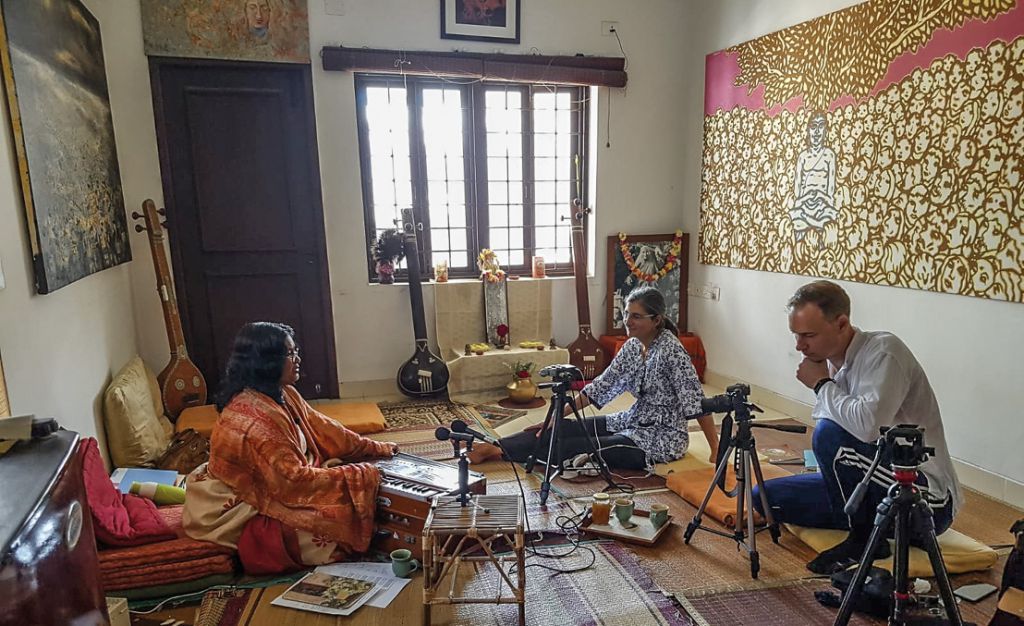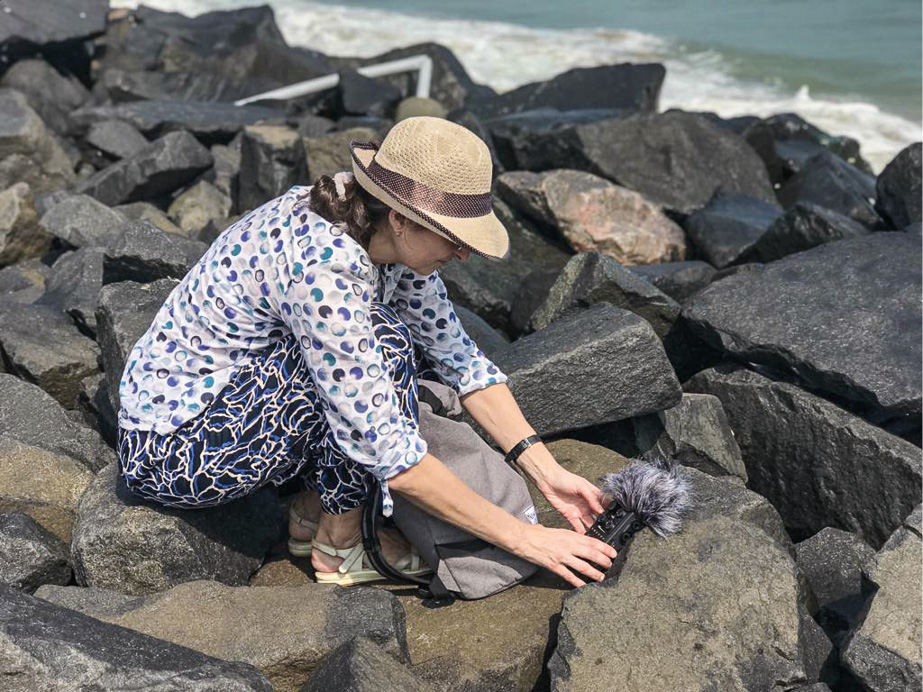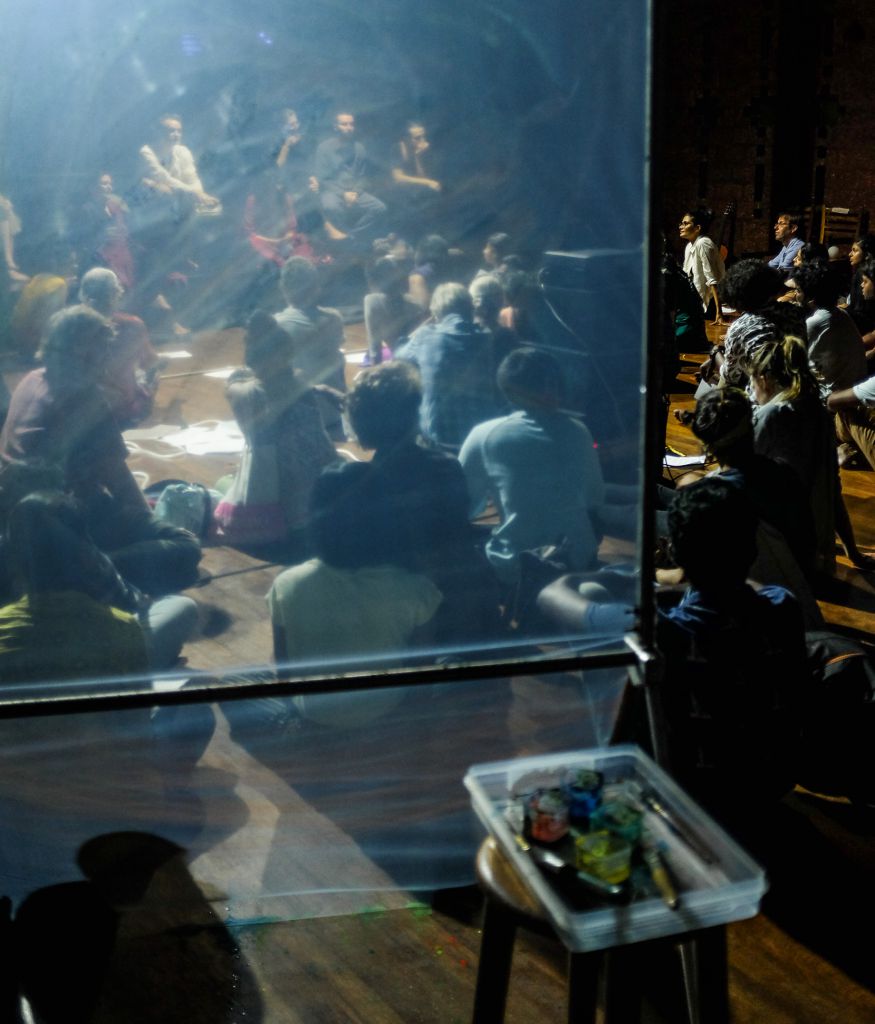A brief report on a three-month stay (December 2018 – March 2019) in the South Indian state of Tamil Nadu sponsored by a grant from the Residency Programme for Artistic Research and Arts-based-Philosophy of baseCollective (Susanne Valerie Granzer and Arno Böhler).
An evening in early December 2018: following much advance communication and preparation, it’s time to meet up at Vienna International Airport. And as we wait together, we begin to get acquainted—”we” being the small group of grantees plus baseCollective founders Susanne Granzer and Arno Böhler. It doesn’t take long for us to realise that we’re in similarly minded but still likeably diverse company as we dive into an experience that will prove to be very well planned but no less adventurous for it.
Early the next morning, a pinkish sunrise heralds our arrival at the carpeted and conspicuously quiet airport in Delhi, where we transfer to a connecting flight that will take us south-eastward to Chennai; from there, we complete our journey’s final leg toward Puducherry in a little bus that ploughs its way through tangled streams of Indian road traffic.

Our retreat “Adishakti”, with its tasteful brick houses, well-groomed garden, and integrated theatre looks to be ideally suited to the gatherings, rehearsals, and performances that we intend to realise there. And the property does full justice to India’s tropically bucolic “Land of Spices” moniker, with pepper vines climbing up coconut palms alongside banana trees and countless blooming plants that provide additional shade.
We’re in the state of Tamil Nadu in the Indian subcontinent’s south-east, a flat and fertile region with red soil where one of the world’s oldest languages (Tamil) is still spoken; not far off is the “universal town” of Auroville, reachable by streets filled with ear-splitting horn-honking and other traffic noise. Cows, pedestrians, dogs, bicycles, mopeds, and other vehicles ranging from little auto rickshaws to glitzy “Ambassador” cars mingle in an impressively anarchic polyphony.
Love Matters… is the theme that the baseCollective has set for our residency, a theme that turns our attention to works by the philosophers Abhivanagupta and Alain Badiou as well as the Persian poet Rumi. These starkly contrasting texts were read (in part as a group) and discussed in what amounted to mini-symposia featuring interesting and fruitful exchanges interspersed by breaks for hot tea and coffee served by locals.
On the basis of these discussions, we’ll be concluding our stay with a “field performance” featuring contributions by all of the grantees. A dramatic sequence is to be put together from the texts, videos, poems, and compositions created on location. While juxtaposing disparate artistic and research-based approaches is no easy task, it does open up unexpected meanings and modes of interpretation.
India’s “postcolonial heritage” is frequently mentioned and very much present. And in this regard, it pays to study the life and works of Sri Aurobindo—a important personality for the idea of an Indian nation and India’s independence—who founded an ashram in Puducherry and remained there up to his death in 1950.
How can our intercultural exchange be successful in a country that features extreme social disparities along with a caste system that’s still very much alive? What aspects of south Indian culture can we understand directly without resorting to tourist-like behaviour—and is it at all possible to encounter each other on an even footing?
Outside our conversations at the retreat, the best ways for me to have an open encounter seem to be by walking around and observing, by making “field recordings”, by talking directly with the (almost always curious) locals, and by taking public busses and trains. Beyond that, it’s especially the exchange with our Indian grantees Kanya and Savita, our morning yoga sessions with Arno, and discussions with invited Indian guests from the arts and academia that afford us access to Indian culture.

Among the most impressive experiences for me are also trips to the giant temple complexes in Tiruvannamalai and Thanjavur, created by sophisticated 11th-century cultures of which I’d previously been unaware.
And another trip—to the Kochi-Muziris Biennale in Kochi, which lies in the neighbouring state of Kerala—shows us the immense potential of India’s contemporary art scene.
Back in Puducherry, we also seek out the singer Lakshmi Santra, whom my colleague Angela and I see for regular lessons in North Indian singing—which turns out to be a foundational musical experience for us both. My study of Indian musical culture gives rise to realisations such as about how Gregorian (church) modes are related to the Indian thaats, and how European musical culture is based largely on Indian theory. Here in Europe, facts like these have hardly been taken into account or integrated—which speaks to our Eurocentric view on and evaluation of (musical) culture. Wouldn’t it be enormously enriching to have a professorship for Indian music in Vienna?
There are too many aspects to mention all of them in this brief report, and altogether, it was a true gift to be able to engage in this international exchange and immerse ourselves in an unfamiliar culture, temporarily away from our everyday lives. This was a visit of substance with long-lasting after-effects and international connections. My thanks go out to the sponsors, to baseCollective, and to my fellow grantees.

Cooperation Partners / Scholarship Sponsors:
University of Music and Performing Arts Graz, mdw – University of Music and Performing Arts Vienna, University of Applied Arts Vienna, baseCollective, Austrian Federal Ministry for Europe, Integration and Foreign Affairs
Grantees:
Lisz Hirn, AT
philosopher/writer/vocalist
Kanya Kachana, IN
poet/researcher/yoga instructor
Jessica Kaiser, DE/AT
musician
Katharina Klement, AT
composer/musician
Kijan Korjenic, BIH/AT
philosopher
Ivan Pantelic, SRB/AT
stage director/studies in social design/musician
Savita Rani, IN
actor/performer
Mersolis Schöne, D/AT
filmmaker/communication psychologist/philosopher
External:
Angela Akbari, AT
art historian
Further information at:

